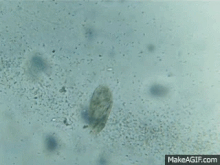I believe in proto- consciousness. i.e. responses to sensory stimulation already present in very primitive organisms. The fundamental fight or flight response has evolved in so many different ways. It always comes down to natural selection of that behavior which gives the organism a higher survival probability. Time does the rest.
Consider a cuttlefish which has the perfect dual technique of shape shifting in a perfect blend with the environment, successfully hiding from predators and at the same time offer a hunting advantage of ambush.
According to the GPT3 developers the limit has not yet been reached and they believe that with more capacity and inter-referential connections, an AI may acquire a form of consciousness that is not necessary connected to emotional chemistry, but more on a logical level, what Vulcans strived to attain in StarTrek
I think that the breakthrough occurred with the concept of text based algorithms, where the AI can access any definitions, synonyms, and antonyms of words and sentences and learn to use express itself in "context", rather than pure binary number data processing.
Ask a GPT3 to design a welcome page with a Google logo and it will design it, but at the same time it will write the code that designs it and when modifications are desired of the original, the AI will promptly execute the requested modification along with a modification in the code. It will design a number of pictures based on a simple premise, such as "design a chair that looks like an avocado.

GPT3 is not anything like Siri or Alexa . GPT3 learns from illustrated text books just like humans and applies what it learns in real time responses. What is there to stop GPT3 from acquiring artificial conscious intelligence?
I believe consciousness intelligence is not only an ability to observe, but also very much connected with understanding the thing that is being observed. And I believe AI can rise to that level if it is taught as if it were human. It takes a human to learn conscious intelligence (IQ) some 18 years to fully develop. Give GPT3 that amount of time and large numbers of Memory and RAM and it will essentially gain the same "understanding" as humans.
Highlighted
So AI is based on Human Understanding . So AI can not go beyond what information is being fed into it by Humans .







